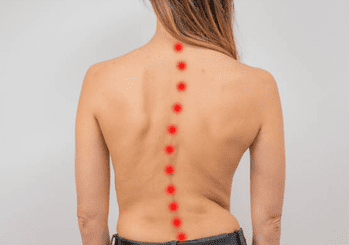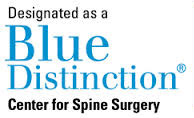Can Adults Develop Scoliosis?
 Yes. Adult scoliosis can occur for a variety of reasons, including the progression of a curve that was present but unnoticed during childhood or adolescence. It can also develop due to degenerative changes in the spine as we age. This occurrence later in life is often referred to as degenerative scoliosis or adult-onset scoliosis.
Yes. Adult scoliosis can occur for a variety of reasons, including the progression of a curve that was present but unnoticed during childhood or adolescence. It can also develop due to degenerative changes in the spine as we age. This occurrence later in life is often referred to as degenerative scoliosis or adult-onset scoliosis.
What causes Degenerative Scoliosis?
Degenerative scoliosis can result from a combination of factors, including:
- Age-related wear and tear on the spine
- Osteoporosis (a condition that weakens the bones)
- Spinal disc degeneration and arthritis in the spinal joints
Are there symptoms to watch for?
These changes that can lead to a gradual curvature of the spine are sometimes accompanied by pain, stiffness, and a reduction in the spine’s mobility.
Symptoms in adults may vary, ranging from mild discomfort to severe pain and physical disability, depending on the severity of the curve and its location in the spine. Some adults may experience symptoms related to nerve compression, such as numbness, tingling, or weakness in the limbs.
What should I do if I am seeing these symptoms?
Diagnosis typically involves a physical examination and imaging tests, such as X-rays, to evaluate the curvature of the spine. Treatment options for adults with scoliosis can include physical therapy, pain management techniques, braces (in some cases), and surgery, depending on the severity of the symptoms and the curvature.
It’s important for adults who experience symptoms of scoliosis, such as persistent back pain or noticeable changes in posture, to consult with a healthcare provider for an accurate diagnosis and appropriate treatment plan.
Are there any risk factors that make it more likely to get adult scoliosis?
While smoking and obesity are often associated with accelerated degeneration of the spine, it remains unclear what factors are involved that cause an abnormal curvature to develop.
